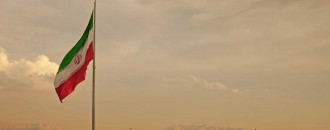
Investors’ confidence on India remains shaky: US envoy
Sai Nikesh | The Dollar Business  “India continues to be perceived as a tough place to do business and the investor confidence towards India still remains shaky,” says Richard Verma, the United States Ambassador to India, while noting that India ranks 142 in the World Bank ranking measuring the ease of doing business. While addressing the students at Indian School of Business, Hyderabad, on Monday, the US envoy also said that the economic relationship between India and the US is not just about large companies coming here to build factories, it is about shared prosperity on all levels. Referring to the US President Obama’s call for a five-fold increase of India-US bilateral trade to $500 billion in the next dozen years, the US official highlighted ongoing improvements and also raised existing concerns in the bilateral trade of the two countries. The envoy said that the two-way trade between the US and India has nearly quintupled in the last dozen years from $19 to almost $100 billion; defence sales have gone from virtually 0 to $10 billion in only a decade; Indian companies now employ tens of thousands of American workers, and the US companies employ even more back here in India. But, he says, the data shows that only 1% of US exports come to India and only 2% of America’s imports come from India. “Given the size of our two economies, no one should be satisfied with $100 billion in two-way trade,” he added. While mentioning that financial inclusion, skills training and clean energy development as three key areas of focus in which the US always wishes to partner with India, the envoy made few key statements. He informed that the Government of India and the US Agency for International Development (USAID) are finalizing an agreement to establish a public private partnership under which the key US, Indian and international organizations will support India in creating an inclusive digital economy. He further informed that the US State Department is working closely with the Indian Ministry of HRD to help US community colleges partner with Indian polytechnic schools, improve curricula, and build stronger links with industry. On the clean energy cooperation with India, the envoy informed that the US government is committed to support India’s ambitious targets on renewable energy, including its target of achieving 100 GW of solar capacity by 2020. While stating that the US-India partnership to Advance Clean Energy has already mobilised over $2.4 billion to invest in clean energy projects in India, he informed that the US Export-Import Bank is ready to make an additional $1 billion available to finance clean energy projects in his regard. He further said that the US Agency for International Development is also helping to build the capacity of India’s power grid and integrate renewable energy. He also said that US-India breakthrough understanding on civil nuclear cooperation will help open the door to US built reactors helping to provide electricity to the 300 million people in India. While informing that the Indian courts face a backlog of 30-40 million cases nationwide, the US envoy laid stress on the need for overhauling of the delayed bureaucratic procedures in India. Mentioning a case that one need around 80 permits to build a hotel in India compared to just six in Singapore, the US envoy says that because of these reasons, the companies simply cannot afford to invest in or provide financing for an economy where legal justice comes too late. As they say, justice delayed is very often justice denied. In this regard, he suggests the Bilateral Investment Treaty as a solution to overcome these challenges and said that if India wants the best technologies, newest products and innovations, then it must also be known for the best intellectual property protection regime, among other key issues to resolve the existing challenges.
“India continues to be perceived as a tough place to do business and the investor confidence towards India still remains shaky,” says Richard Verma, the United States Ambassador to India, while noting that India ranks 142 in the World Bank ranking measuring the ease of doing business. While addressing the students at Indian School of Business, Hyderabad, on Monday, the US envoy also said that the economic relationship between India and the US is not just about large companies coming here to build factories, it is about shared prosperity on all levels. Referring to the US President Obama’s call for a five-fold increase of India-US bilateral trade to $500 billion in the next dozen years, the US official highlighted ongoing improvements and also raised existing concerns in the bilateral trade of the two countries. The envoy said that the two-way trade between the US and India has nearly quintupled in the last dozen years from $19 to almost $100 billion; defence sales have gone from virtually 0 to $10 billion in only a decade; Indian companies now employ tens of thousands of American workers, and the US companies employ even more back here in India. But, he says, the data shows that only 1% of US exports come to India and only 2% of America’s imports come from India. “Given the size of our two economies, no one should be satisfied with $100 billion in two-way trade,” he added. While mentioning that financial inclusion, skills training and clean energy development as three key areas of focus in which the US always wishes to partner with India, the envoy made few key statements. He informed that the Government of India and the US Agency for International Development (USAID) are finalizing an agreement to establish a public private partnership under which the key US, Indian and international organizations will support India in creating an inclusive digital economy. He further informed that the US State Department is working closely with the Indian Ministry of HRD to help US community colleges partner with Indian polytechnic schools, improve curricula, and build stronger links with industry. On the clean energy cooperation with India, the envoy informed that the US government is committed to support India’s ambitious targets on renewable energy, including its target of achieving 100 GW of solar capacity by 2020. While stating that the US-India partnership to Advance Clean Energy has already mobilised over $2.4 billion to invest in clean energy projects in India, he informed that the US Export-Import Bank is ready to make an additional $1 billion available to finance clean energy projects in his regard. He further said that the US Agency for International Development is also helping to build the capacity of India’s power grid and integrate renewable energy. He also said that US-India breakthrough understanding on civil nuclear cooperation will help open the door to US built reactors helping to provide electricity to the 300 million people in India. While informing that the Indian courts face a backlog of 30-40 million cases nationwide, the US envoy laid stress on the need for overhauling of the delayed bureaucratic procedures in India. Mentioning a case that one need around 80 permits to build a hotel in India compared to just six in Singapore, the US envoy says that because of these reasons, the companies simply cannot afford to invest in or provide financing for an economy where legal justice comes too late. As they say, justice delayed is very often justice denied. In this regard, he suggests the Bilateral Investment Treaty as a solution to overcome these challenges and said that if India wants the best technologies, newest products and innovations, then it must also be known for the best intellectual property protection regime, among other key issues to resolve the existing challenges.
This article was published on February 24, 2015.






 to success.
to success.